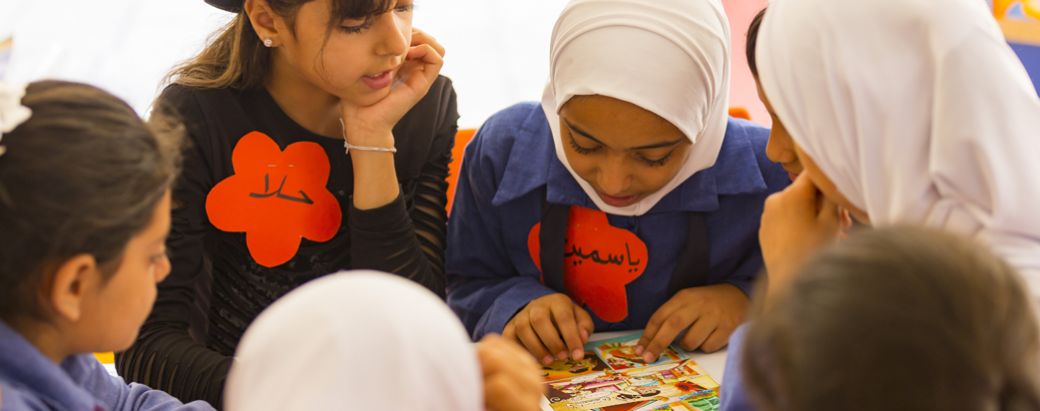
About the Project
This project is one of the 2018 WISE Awards winners.
1001 Nights Life Skills and Citizenship Education Program is an educational entertainment program using cartoons to engage children and teach life skills and citizenship education in formal and informal school environments. Based on the award winning animated television series 1001 Nights, this platform is piloted by the ministries of education of 15 countries and UNICEF. With each episode developed to teach a different civic value, the program’s 40 lessons plan curriculum stimulates critical thinking skills, citizenship values, empathy and civil rights. This platform has also been used by UNICEF in post-conflict situations and proven to be effective in providing psychological support for refugees’ children.
Context and Issue
Some of the greatest problems the world faces globally include; sectarianism, intolerance and growing socio-economic disenfranchisement of youth, all of which cause violence and much of which are root-causes of extremism. There is a need for programs that promote inclusion, respect for different ideas, non-violence, human rights, following the rule of law and the development of healthy youths so that they can be positive agents in the development of stable societies and social cohesion. Beyond teaching such ideas to promote stability, there are over 12 million children in the MENA region that live in post-conflict societies that desperately need psychosocial support to cope with the effects of their persistent exposure to violence. There is finally a need to instill critical thinking skills in all children.
Solution and Impact
1001 Nights is a multi-platform educational entertainment program developed to teach life skills and citizenship education in formal and informal learning environments, based on the award winning animated television series 1001 Nights (Alf Layla Walayla) which airs in 70 countries and 20 languages to a global audience of over 100 million people per year on premier television networks including Al Jazeera Children’s Channel, Disney, PBS, Discovery Kids and Cartoon Network. While funny, each animated episode was developed to teach a different civic value. The 40 lesson-plan curriculum, uses 10-minute animated episodes (from the television series, which children watch in class) as the focal point of in-class lessons that include interactive discussions and activities. The curriculum also includes take-home assignments for children to complete with their families.
The curriculum is currently being used or piloted by ministries of education and UNICEF in formal and informal learning in 15 countries throughout Asia, the Middle East and North Africa to teach life skills and provide PSS for refugees and IDPs.
While the 1001 Nights curriculum was developed to teach Life Skills and Civic Education (LSCE) , it addresses two additional challenges. First, the program has been shown to have very strong impact in providing PSS for children in post-conflict situations, so UNICEF is using the program as a cornerstone of its PSS offering for children impacted by the Syrian conflict in Jordan (and other countries). Second, the curriculum was developed to stimulate critical thinking skills -even with teachers that use rote-teaching methodologies. Third party M&E studies have shown that the 1001 Nights Program measurably increases children’s understanding and appreciation of citizenship values, empathy and civil rights.
Future Developments
The UNICEF Regional MENA office is also currently evaluating the program for inclusion in its LSCE initiative.


